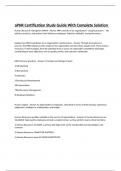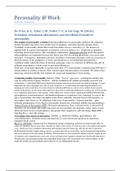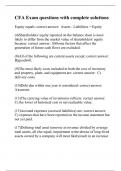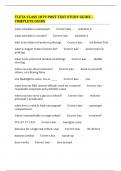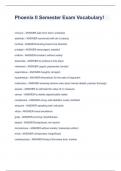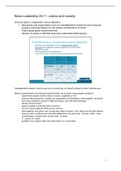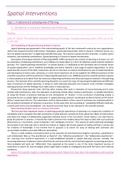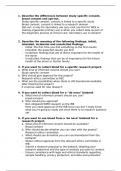How Does Physical Activity Affect Longevity
Introduction
According to the world health organisation, Physical activity is defined as “any bodily movement
produced by skeletal muscles that requires energy expenditure” (World Health Organisation, 2017).
Longevity is simply the duration of human life (National Institute of Health, 2020).The World Health
Organisation estimates that 3.2 million deaths each year can be attributed to a lack of physical activity
(World Health Organisation, 2014). The relative risk of death is approximately 20% to 35% lower in
physically active and fit persons compared to that in inactive and unfit persons (Warburton DER, Nicol
CW, Bredin SSD 2006), (amitz G, Egger M, Zwahlen M. 2011). Adami PE, Negro A, Lala N, Martelletti
P claim that Physical inactivity represents a major independent risk factor for mortality accounting for up
to 10% of all deaths in the European region. Additionally, physical inactivity is the fourth greatest risk
factor for mortality globally and is the main cause of many physical and mental health problems,
including diabetes and heart disease (World Health Organisation, 2017). Farahmand B, Broman G, De
Faire U, Vågerö D, Ahlbom A stated, 40% lower mortality rate corresponds to an approximately 5-year
higher life expectancy, one would expect an approximately 3.5- to 4.0-year higher life expectancy in
physically active persons compared to that in inactive persons.This review aims to review current
literature on how physical activity affects longevity.
The body responds to physical activity in ways that have important positive effects on musculoskeletal,
cardiovascular, respiratory, and endocrine systems (Manley, 1997). People of all ages, both male and
female, undergo beneficial physiologic adaptations to physical activity (Manley, 1997). Exercise makes
human bodies stronger, because it increases the blood supply to our brains (Stone et al., 1998). Physical
, activity has a positive impact on autonomic regulation of the heart. With more physical activity, there was
an increased heart rate variability (HRV) (Tornberg et al., 2019). The increased energy expenditure that
accompanies regular physical activity contributes to more efficient function of various systems, 7 weight
maintenance, reduced risk of several degenerative diseases, reduced risk of mortality, and overall
improvement of quality of life (Tornberg et al., 2019).
Current government recommendations state that adults should be active daily, participating in at least 150
minutes of moderate intensity exercise or 75 minutes of vigorous activity (National Health Service
[NHS], 2019). The World Health Organisation (WHO) and American Heart Association (AHA) also
suggest the same guidelines .Moderate intensity is defined as increasing your heart rate to 60-70 percent
of your maximal heart rate (i.e your age in years subtracted from 220) or 3-6 METs (ratio of your
working metabolic rate to your resting metabolic rate). Vigorous activity can be described as increasing
your heart rate to 70-85 percent of your maximal heart rate or greater than 6 METs (Zeblisky, 2019).
Between May 2018 and May 2019, 24.8% of people in England were inactive (Sport England, 2019),
meaning that they failed to meet the physical activity guidelines. Public Health England believes that if
the current trends continue, by 2035 England will be 15% less active than it is now (Public Health
England, 2019).
It is fair to suggest the guidelines by the world health organisation and the NHS are questionably low and
very vague when compared to other organisations, however, Determining the appropriate amount and
type of physical activity for different individuals remains difficult. For example, the Office for Disease
Prevention and Health promotion (ODPHP) suggests that children and adolescents should perform 60
minutes or more of physical activity every day. The 60 minutes should include aerobic activities, muscle-
strengthening activities, and bone-strengthening activities. However, the ODPHP echoes the higher levels
Introduction
According to the world health organisation, Physical activity is defined as “any bodily movement
produced by skeletal muscles that requires energy expenditure” (World Health Organisation, 2017).
Longevity is simply the duration of human life (National Institute of Health, 2020).The World Health
Organisation estimates that 3.2 million deaths each year can be attributed to a lack of physical activity
(World Health Organisation, 2014). The relative risk of death is approximately 20% to 35% lower in
physically active and fit persons compared to that in inactive and unfit persons (Warburton DER, Nicol
CW, Bredin SSD 2006), (amitz G, Egger M, Zwahlen M. 2011). Adami PE, Negro A, Lala N, Martelletti
P claim that Physical inactivity represents a major independent risk factor for mortality accounting for up
to 10% of all deaths in the European region. Additionally, physical inactivity is the fourth greatest risk
factor for mortality globally and is the main cause of many physical and mental health problems,
including diabetes and heart disease (World Health Organisation, 2017). Farahmand B, Broman G, De
Faire U, Vågerö D, Ahlbom A stated, 40% lower mortality rate corresponds to an approximately 5-year
higher life expectancy, one would expect an approximately 3.5- to 4.0-year higher life expectancy in
physically active persons compared to that in inactive persons.This review aims to review current
literature on how physical activity affects longevity.
The body responds to physical activity in ways that have important positive effects on musculoskeletal,
cardiovascular, respiratory, and endocrine systems (Manley, 1997). People of all ages, both male and
female, undergo beneficial physiologic adaptations to physical activity (Manley, 1997). Exercise makes
human bodies stronger, because it increases the blood supply to our brains (Stone et al., 1998). Physical
, activity has a positive impact on autonomic regulation of the heart. With more physical activity, there was
an increased heart rate variability (HRV) (Tornberg et al., 2019). The increased energy expenditure that
accompanies regular physical activity contributes to more efficient function of various systems, 7 weight
maintenance, reduced risk of several degenerative diseases, reduced risk of mortality, and overall
improvement of quality of life (Tornberg et al., 2019).
Current government recommendations state that adults should be active daily, participating in at least 150
minutes of moderate intensity exercise or 75 minutes of vigorous activity (National Health Service
[NHS], 2019). The World Health Organisation (WHO) and American Heart Association (AHA) also
suggest the same guidelines .Moderate intensity is defined as increasing your heart rate to 60-70 percent
of your maximal heart rate (i.e your age in years subtracted from 220) or 3-6 METs (ratio of your
working metabolic rate to your resting metabolic rate). Vigorous activity can be described as increasing
your heart rate to 70-85 percent of your maximal heart rate or greater than 6 METs (Zeblisky, 2019).
Between May 2018 and May 2019, 24.8% of people in England were inactive (Sport England, 2019),
meaning that they failed to meet the physical activity guidelines. Public Health England believes that if
the current trends continue, by 2035 England will be 15% less active than it is now (Public Health
England, 2019).
It is fair to suggest the guidelines by the world health organisation and the NHS are questionably low and
very vague when compared to other organisations, however, Determining the appropriate amount and
type of physical activity for different individuals remains difficult. For example, the Office for Disease
Prevention and Health promotion (ODPHP) suggests that children and adolescents should perform 60
minutes or more of physical activity every day. The 60 minutes should include aerobic activities, muscle-
strengthening activities, and bone-strengthening activities. However, the ODPHP echoes the higher levels


